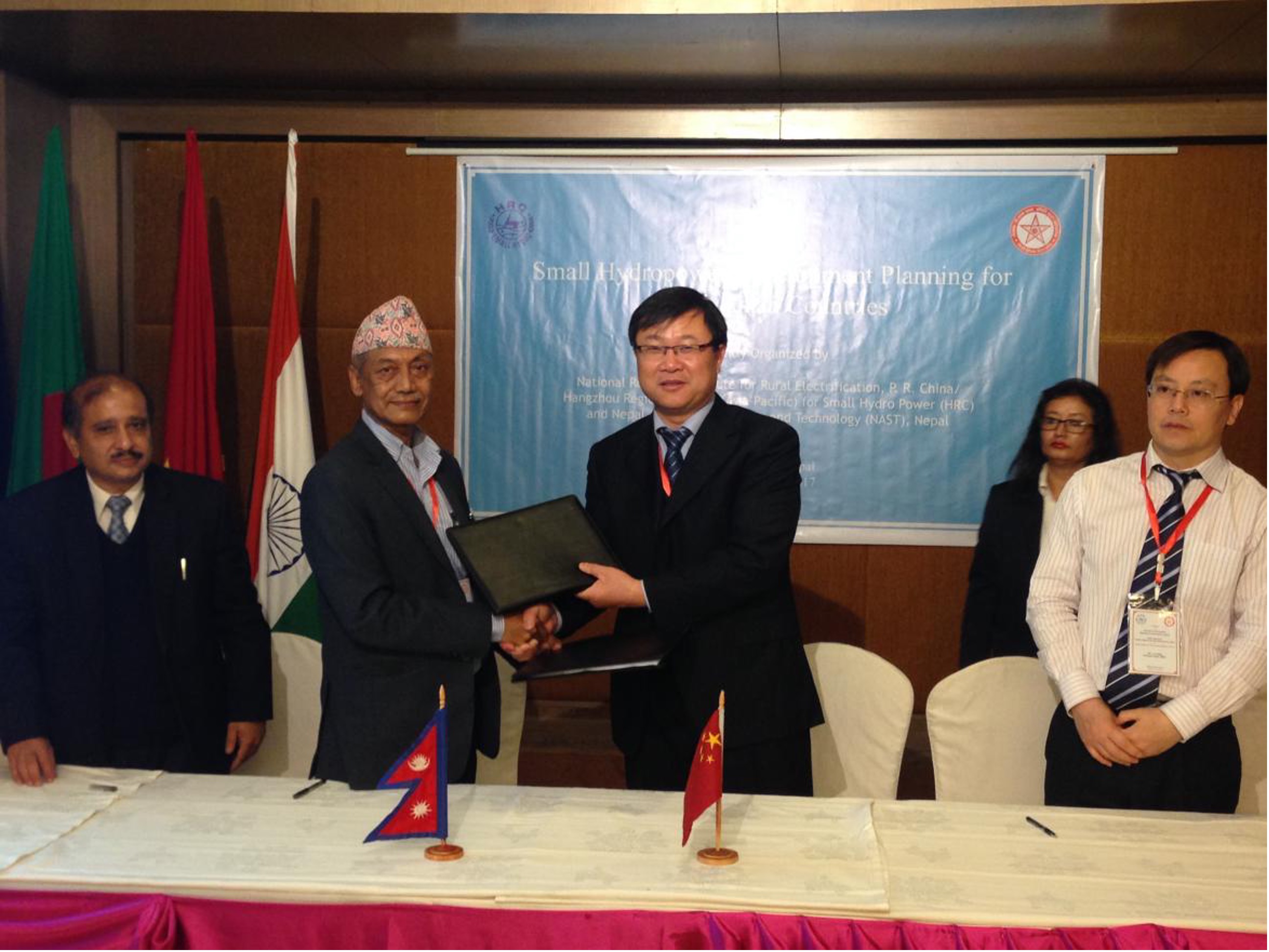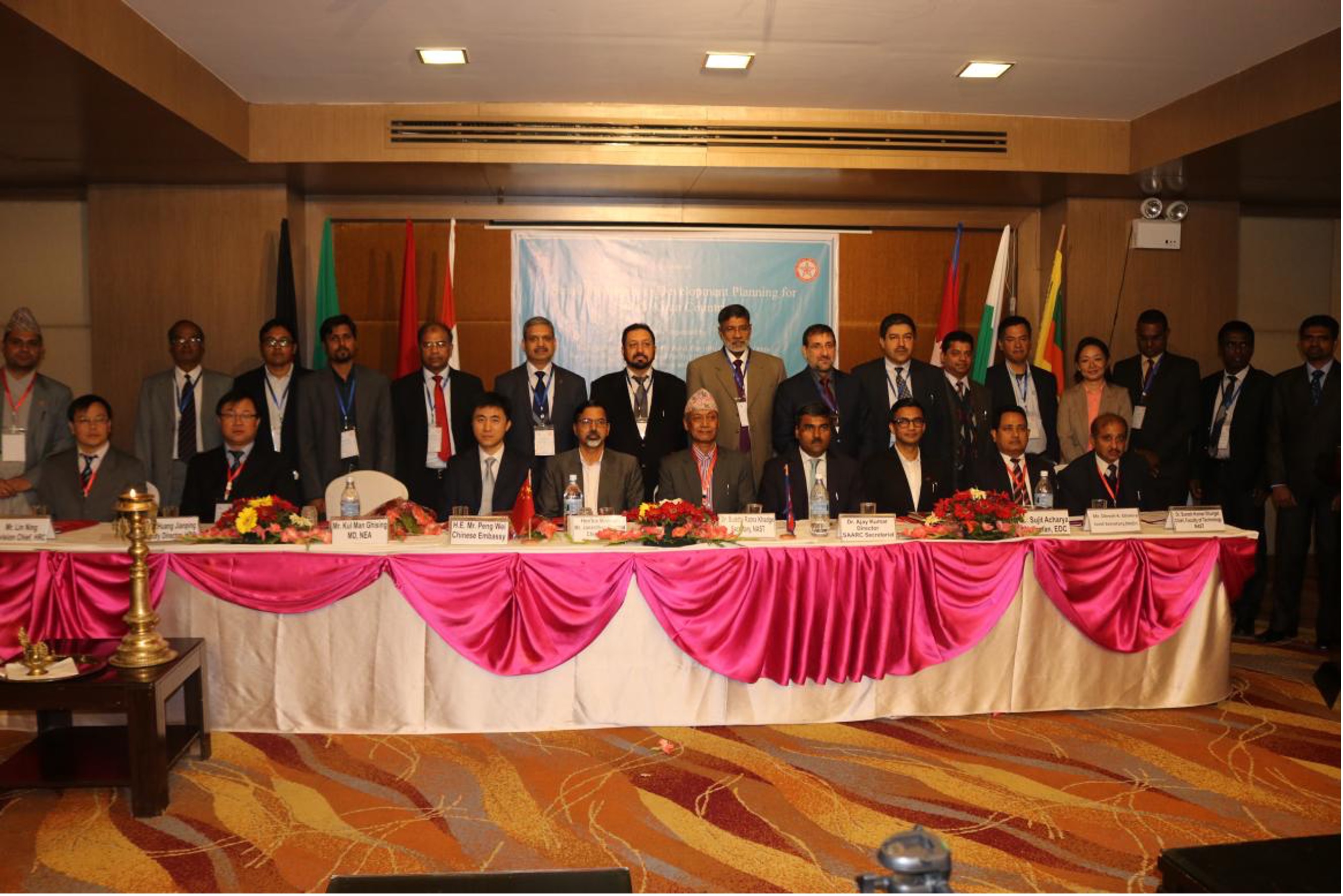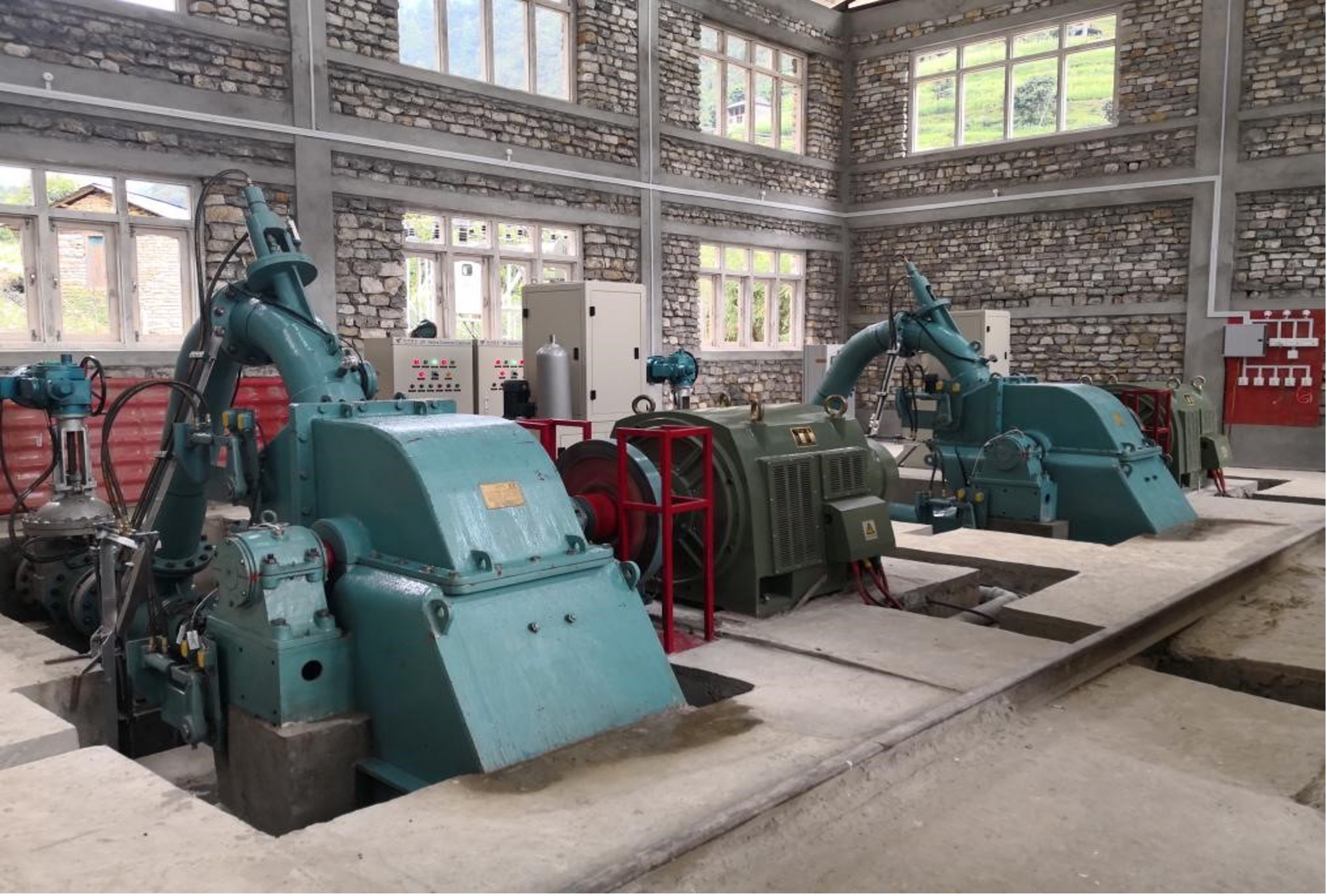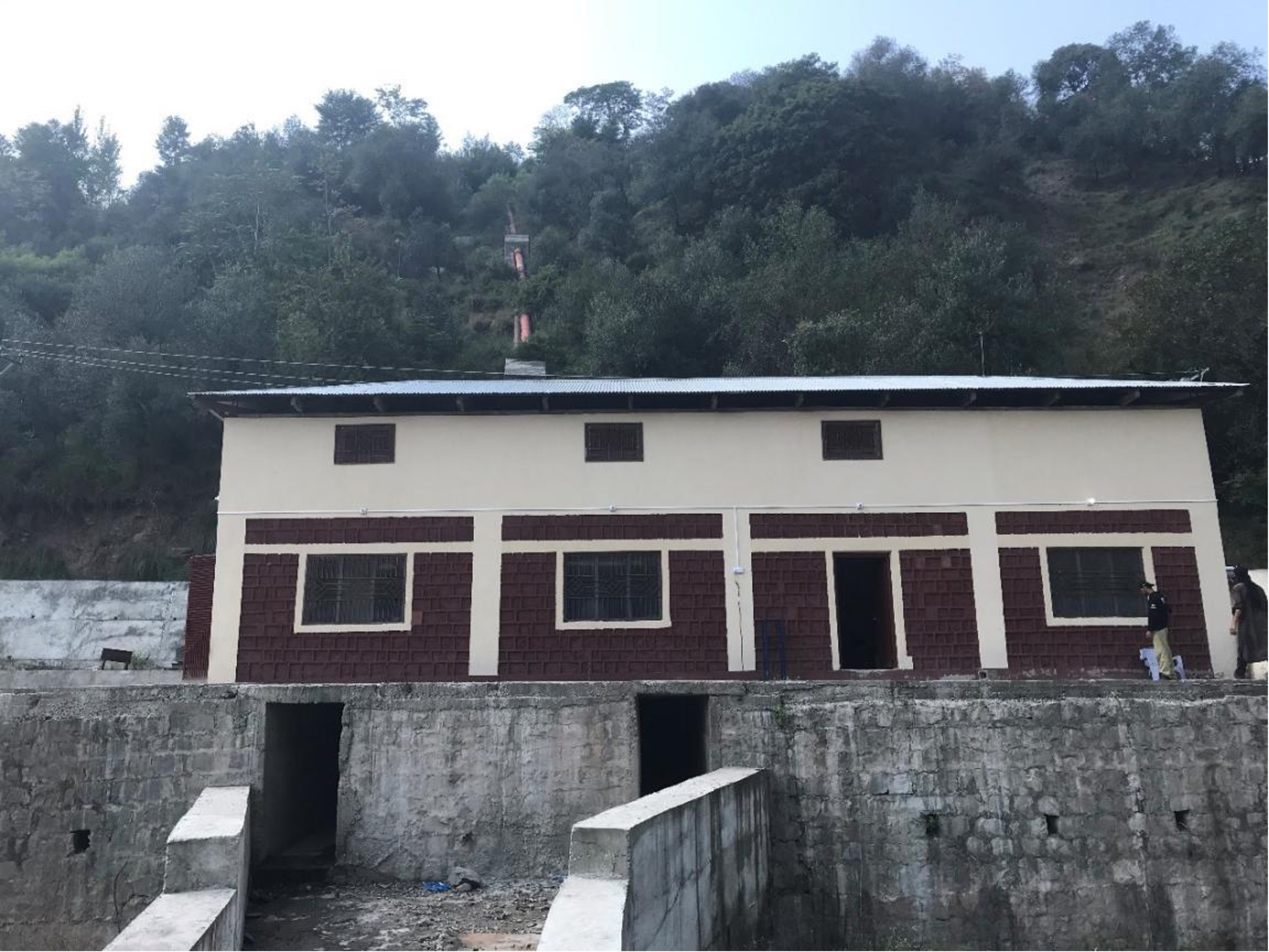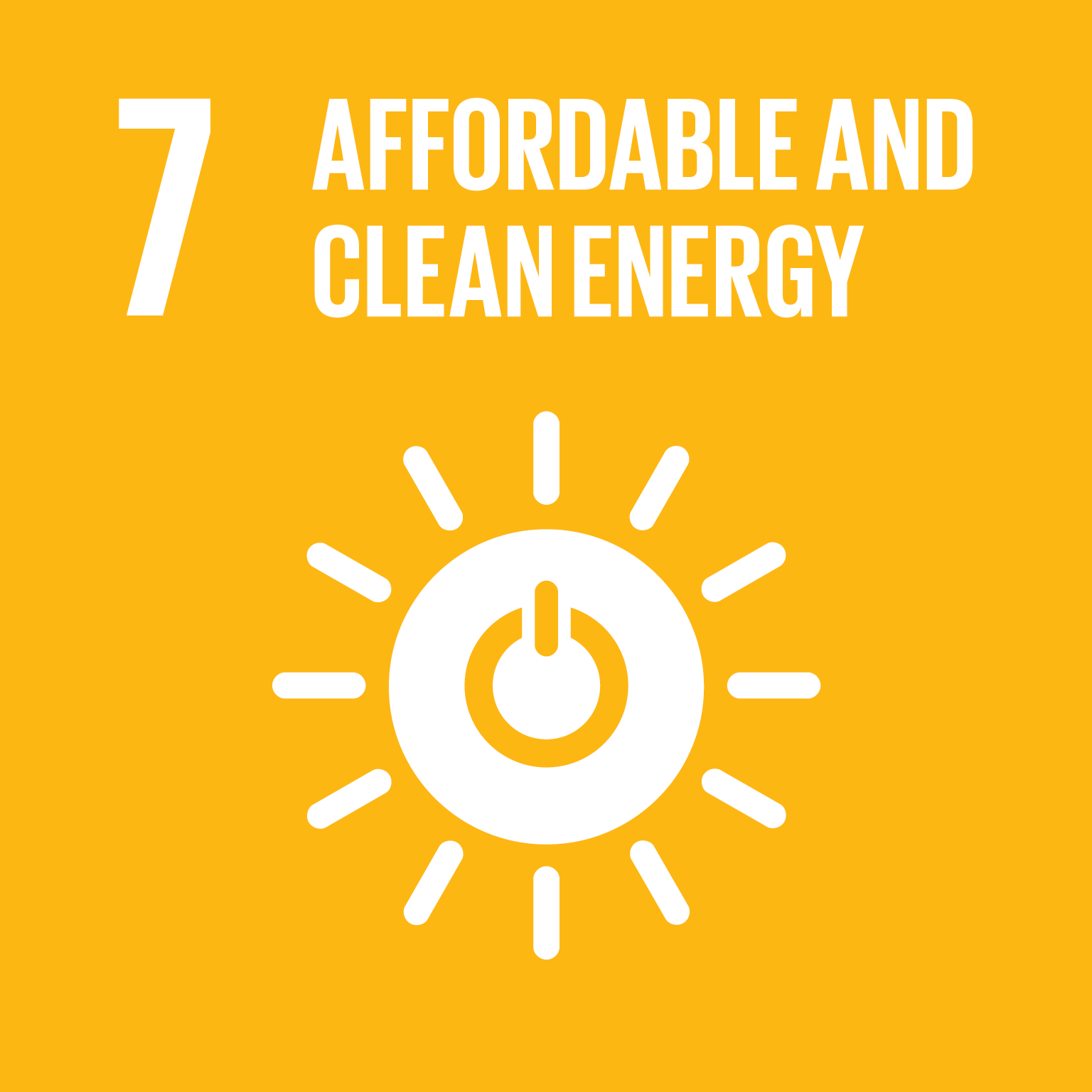 Hydropower Development Planning for South Asian Countries
Development planning and off-grid demonstration projects to develop clean energy
Hydropower Development Planning for South Asian Countries
Development planning and off-grid demonstration projects to develop clean energy

Challenges
With the rapid economic development of South Asian countries, power supplies are often insufficient and are no longer meeting the needs of production and consumption, constraining further socioeconomic development. Meeting energy needs is a regional challenge. A high dependence on fossil fuels has negative impacts on the ecological environment and affects climate change, leading to disasters such as drought, soil erosion, flooding, etc. South Asian countries have abundant water resources, but competent expertise in integrated hydropower planning and management and off-grid power generation technologies are insufficient.
Throughout the world, an increasing focus is being put on developing clean energy, including hydropower, to achieve the goal of accessing affordable, reliable and sustainable energy and to mitigate climate change caused by the heavy dependence on fossil fuels. Hydropower development on rivers can help regulate and improve the integrated management of water resources, accelerate the efficient and rational development and utilization of green hydro-energy and protect the ecological environment, thus promoting the sustainable social and economic development of countries.
However, hydropower development involves not only the technical expertise of hydropower exploitation itself, such as geological and hydrological investigation, hydropower plant design and construction, energy distribution, etc., but also entails comprehensive and often multi-state requirements related to water utilization, water supply, irrigation, shipping, fisheries, ecological protection, etc.
Towards a Solution
To tackle the complex technical and political issues related to the development of hydropower, Nepal and other South Asian countries recognized the need to deepen international cooperation. Funded by the Perez-Guerrero Trust Fund (PGTF) for South-South cooperation, the Hydropower Development Planning for South Asian Countries project improved conceptual awareness and capacity building for the development planning of hydropower resources in the South Asian region. The project facilitated technology transfer and promoted the accessing of remote communities with electricity to achieve SDG 7 (Affordable and Clean Energy), SDG 13 (Climate Action) and SDG 17 (Partnerships for the Goals).
Project strategies included promoting bilateral and multilateral cooperation between China and South Asian countries, technol- ogy and information exchange, research and development, project demonstration and database creation. The project began by ensuring stakeholder buy-in through knowledge development, exchange and drawing up formal agreements. In 2017, a three-day seminar on “Hydropower Development Planning for South Asian Countries” was held in Kathmandu, Nepal, attended by 24 officials from Afghanistan, Bangladesh, India, Nepal, Pakistan and Sri Lanka. The seminar included technical lectures, power station visits and cooperation talks. A cooperative resolution and memorandum of understanding were signed with the Hangzhou Regional Center (Asia-Pacific) for Small Hydro Power (HRC) and participating partners to enhance R&D collaboration, share hydropower data resources and to help policymakers in countries facilitate hydropower development, especially through off-grid projects.
Following this groundwork, two off-grid demonstration hydropower plants were built and became operational in 2019, the Tara Khola plant (2×190kW)inNepalandtheRangar-IIplant(2×225kW)inPakistan.The building of the off-grid demonstration projects effectively resolved local power shortages in the areas. For instance, the installed power capacity has been increased from 50kW to about 430kW in Nepal. A database (using QGIS software) was established on small hydropower and rural electrification in India, Nepal, Pakistan and Sri Lanka.
To ensure the stability and reliability of the off-grid small hydropower systems, a specially developed High-Pressure Unit was adopted for quick response of the turbine-generator set regulation, which is innovative. Moreover, the linkage of the High-Pressure Unit and the Electronic Load Controller system is low cost, simple, reliable and highly replicable. The database will support South Asian countries to carry out hydropower development planning and deepen cooperation, thus sustaining hydropower development in the region. The project received strong support from the Ministry of Energy and the Ministry of Science and Technology of Nepal, the Chinese Embassy in Nepal and other South Asian authorities, resulting in good social responses, further boosting its sustainability and replicability in the region.
The project’s methodology of promoting mutually beneficial cooperation and knowledge sharing among stakeholders as a first step, followed by technology transfer, demonstration sites and data collection, to promote hydropower development is applicable to the entire South Asia region and can be applicable to other regions of the world as well.
Contact Information
Countries involved
Supported by
Implementing Entities
Project Status
Project Period
URL of the practice
Primary SDG
Primary SDG Targets
Secondary SDGs
Secondary SDG Targets
Similar Solutions
| NAME OF SOLUTION | Countries | SDG | Project Status | |
|---|---|---|---|---|
360-Degree Awareness Tool to Fight COVID-19 Raising awareness and ensuring public wellbeing through a one-stop platform for fighting COVID-19 in Bangladesh |
Afghanistan, Bangladesh, China, India, Nepal, Pakistan, Sri Lanka | 16 - Peace and Justice Strong Institutions | Ongoing | View Details |
A Billion Brains: Smarter Children, Healthier Economies High Level Meeting on South-South Cooperation for Child Rights |
Afghanistan, Bangladesh, China, India, Nepal, Pakistan, Sri Lanka | 17 - Partnerships for the Goals | Completed | View Details |
A-Card Initiative |
Afghanistan, Bangladesh, China, India, Nepal, Pakistan, Sri Lanka | 10 - Reduced Inequalities | Completed | View Details |
Accelerating Digital Transformation in All Ministries in Bangladesh Promoting the rapid design and implementation of plans to digitize all ministries and subordinate government institutions in Bangladesh |
Afghanistan, Bangladesh, China, India, Nepal, Pakistan, Sri Lanka | 10 - Reduced Inequalities | Ongoing | View Details |
Accelerating the Transformational Shift to a Low-Carbon Economy in Mauritius Towards supplying 35 percent of the country’s energy needs with renewables by 2025 |
Afghanistan, Bangladesh, China, India, Nepal, Pakistan, Sri Lanka | 05 - Gender Equality 09 - Industry, Innovation and Infrastructure 13 - Climate Action | Ongoing | View Details |
